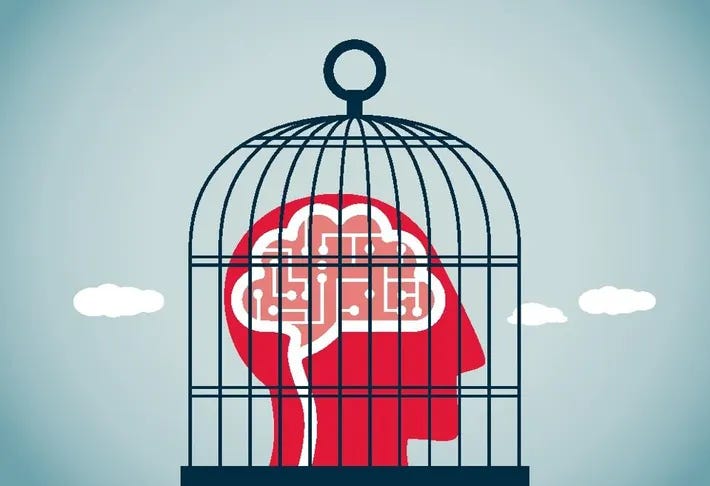The Hidden Mental Patterns That Lead to Impulsive Decisions
Phase 3: Understanding Your Mind – Why You Lose Control Without Realizing It

This month, we are diving into "The Power of Mental Strength & Self-Control." Stay with us, explore, and give yourself a chance to grow.
Impulsive decisions often happen when we act on automatic mental patterns, pushing us to make choices without fully thinking them through.
The good news is, you can recognize these patterns and use that awareness to pause, reflect, and make better choices.
The shift is simple, but powerful: Pause before you act.
It sounds easy, right?
But it’s something most of us forget to do in the heat of the moment.
However, taking just a brief pause can make all the difference.
It gives you the chance to slow down and ask yourself, “Is this really the best choice for me?” This little moment of reflection can help you break the cycle of impulsivity and start making decisions that are more aligned with your long-term goals.
Have you ever made a decision only to realize later that you didn’t think it through? You’re not alone, and the key to better choices lies in simply pausing before you act.
Rewire Your Mindset
Impulsive decisions are often automatic responses to triggers we aren’t fully aware of. By understanding these triggers, you can interrupt them and make more thoughtful decisions.
Every time you pause and think, you’re training your brain to make better choices.
Try this now: When you feel the urge to act impulsively, take a deep breath and ask yourself, “Is this the best choice for me?” This simple question can give you the space to make a more mindful decision.
Have you ever paused to ask yourself this before? What happened when you did?
Common Mental Patterns Behind Impulsivity
Instant Gratification
The brain is wired to seek quick rewards. Whether it’s an impulsive purchase or a spontaneous decision, the desire for immediate satisfaction often leads to regret when we fail to think long-term. Have you ever made an impulsive purchase only to regret it later?FOMO (Fear of Missing Out)
FOMO creates a sense of urgency, making you feel like you need to act quickly to avoid missing an opportunity, even if that opportunity isn’t aligned with your values or goals. Have you ever rushed into a decision because you feared missing out, only to realize it wasn’t right for you?Social Pressure
When others make quick decisions or act in certain ways, it’s easy to follow suit without stopping to consider if it’s the right decision for you. Social pressure can push you into decisions that may not be in your best interest. Have you ever made a choice simply because others around you were doing it?Emotional Reactivity
Strong emotions like excitement, anger, or frustration can cloud your judgment and lead to impulsive actions. In these moments, quick decisions may seem like a way to release or act on those emotions. When was the last time you acted impulsively because of strong emotions? What was the outcome?
What to Do Right Now:
Pause and Reflect:
Before you act on impulse, take a moment to breathe and reflect. This small pause can create the space you need to make a more thoughtful decision. Do you find it easy or hard to pause before making decisions?Focus on Long-Term Goals:
Consider whether the decision aligns with your long-term vision. Ask yourself, “How will this choice impact my future?” Staying connected to your goals helps you make choices that serve your bigger picture. Does this decision help you move closer to your goals, or does it take you off track?
Think about a recent impulsive decision you made.
What mental pattern triggered that action? Was it the desire for instant gratification, FOMO, social pressure, or emotional reactivity?
What’s one small step you can take today to slow down and make a more intentional choice? How can you remind yourself to pause before acting next time?




Well said! It's the old "count to five", and also the great Viktor Frankl's quote: "Between stimulus and response there is a space. In that space is our power to choose our response. In our response lies our growth and freedom.”
It's just so hard to do sometimes.
Wild how we think we're in control, but really, our brains are just speed-running old scripts like a glitchy video game. That tiny pause before reacting? Feels like the equivalent of hitting 'save' before making a dumb move. Also, the long-term goals part - brutal but true. My future self deserves better than being sacrificed for five seconds of dopamine. Brilliant read: practical, sharp, and a much-needed reality check. Appreciate you sharing this wisdom!